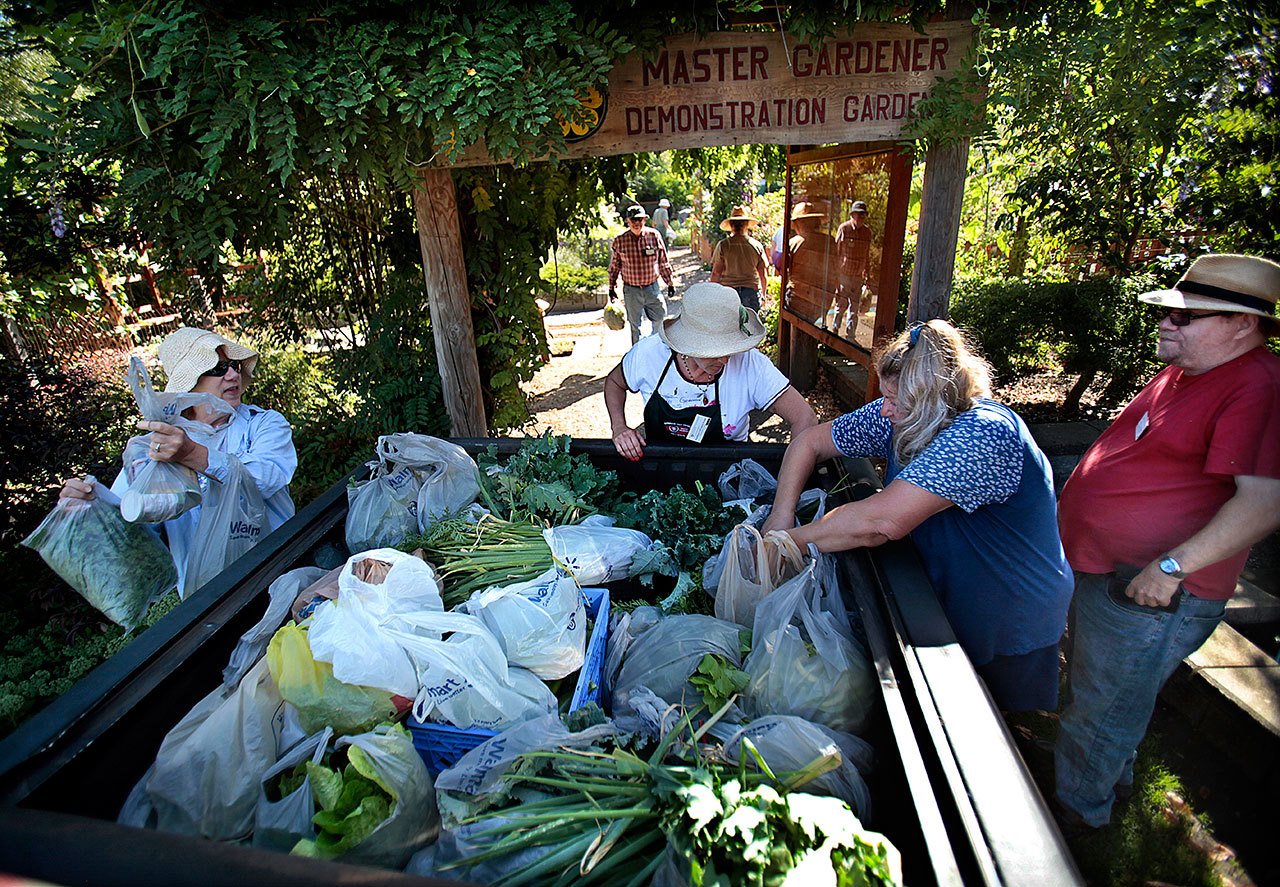By The Herald Editorial Board
The old joke, popular around this time of year, at least among gardeners, is that you shouldn’t leave your car unlocked. Not because car prowlers might steal something but because a neighborhood vegetable gardener might abandon a zucchini in your backseat.
But the joke does point to a problem, but one that also offers a solution to an even larger problem. Food waste being the first; hunger, the second.
When food waste gets attention, the TV news cameras generally train on the safe and edible food thrown out by restaurants and grocery stores. But of the 133 billion pounds of food thrown out in the U.S. in 2010, two-thirds of it, more than 88 billion tons, went from our own kitchens and into the garbage or compost bin.
Some of that we have to admit to ourselves is out of pure pickiness, tossing out produce or other food because it’s slightly overripe or bruised. Other times, good intentions while shopping and poor meal planning might result in food that gets pushed to back of the fridge where it spoils before we can use it.
For others, there’s confusion over food labels with “expires on,” “best by” and “use by” dates. According to a recent Boston Globe story, a survey found that 68 percent of Americans believe it’s OK to throw away food that is past its expiration date because it reduces the chance of getting sick. But those dates aren’t intended as food safety guides but are just the manufacturers’ estimates of how long the food will look and taste the best.
Pasteurized dairy products, such as milk and yogurt, for example, are safe to eat beyond the “sell by” date. A little reason and a sniff might be a better indicator of freshness.
Wasted food isn’t just added weight in the trash can. Food that is thrown out represents the wasted resources, energy and effort that goes into producing food — food that could be feeding those in need.
Two national organizations, AmpleHarvest.org and GreenFaith, are encouraging faith and religious leaders around the country this weekend to call on their congregations and communities to reduce food waste and direct more of that food to end hunger, assisting food banks, pantries and related programs.
“The goal of Food Waste Weekend is to encourage and enable clergy of all faiths to speak from their own religious perspective, not only about hunger as they have in the past, but also about hunger’s root cause — the waste of food,” said Gary Oppenheimer, AmpleHarvest’s executive director.
Of that 88 billion pounds of food wasted, about 11 billion of it is grown in home and community gardens, and it’s food that is greatly prized at food banks.
“That’s some of the healthiest food that comes in,” said Dell Deierling, director of the Marysville Community Food Bank.
As do most other food banks and pantry programs in the county, Marysville encourages gardeners to bring in their overabundance during the harvest. For produce that is most perishable, such as lettuce, it helps if you time the donation near the food bank’s distribution days, which can be found on food bank websites or by calling, Deierling said.
The produce doesn’t need special handling; box it up or bag it and bring it in, although staff appreciate it when dirt has been washed from potatoes, carrots and other root vegetables, he said.
And you can help with the harvest even if you don’t have a garden. Volunteers of America, which is part of the Snohomish County Food Bank Coalition, signs up volunteers for Project Harvest to help with harvesting and gleaning from local fields and orchards to help supply food banks. VoA also encourages gardeners to “Plant a Row” to dedicate a portion of their harvests to food banks.
There’s really no need to skulk around the neighborhood trying to foist zucchini off on the unsuspecting.
“We’ll take your zucchini,” Deierling said. “Whenever zucchini comes in, somebody takes it.”
Correction: An earlier version of this editorial ommitted attribution of a quote from Gary Oppenheimer, executive director of AmpleHarvest.
Talk to us
> Give us your news tips.
> Send us a letter to the editor.
> More Herald contact information.

























